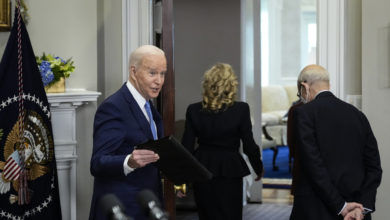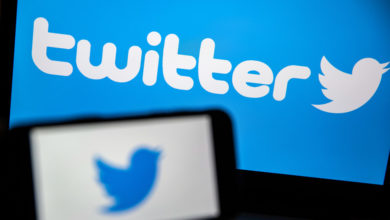This Juneteenth, BLM Should Reflect on Its Global Impact

JOneteenth Day is dedicated to the celebration of the freedom of all enslaved Black Americans. Yet even as the newest U.S. holiday marks a uniquely American moment in Black history, the events of the last few years—from the international growth of the Black Lives Matter movement to the disproportionate impact of the COVID-19 pandemic—have been a reminder that the Black freedom struggle is far from won.
Perhaps the best way to help the home fight is by joining forces with people of other races around the globe. Many Black American leaders don’t see the great potential for alliance. American exceptionalism is grounded in white supremacy. Is Black America complicit in the geopolitical goals of white America by not questioning them? Few, if any, Black leaders have asked the question, let alone questioned the country’s foreign policy.
The issue Black America faces is reflected in the following statement: “When you invade a foreign nation, that is a war crime.” These were the words of former Secretary of State Condoleezza Rice, as she was asked about Russia’s invasion of Ukraine during a Feb. 27 interview with Fox News.
Learn More Black Activists: How to Honor Juneteenth
Rice is known around the world as one of the architects of the invasion of Iraq—a war crime by her own standards. She is a Black American and represents the paradox that many Black Americans are facing right now: The quest for equality, as well as support for white America’s hegemonic power around the globe, does not have to be mutually exclusive.
How about supporting communities in the developing world who have suffered from white America’s policies? Compared to the days when Malcolm X was a leader in anti-imperialist thought, or musician Gil Scott-Heron sang about “Third World revolution,” the concerns of Black America today are largely domestic, and often lack a sense of solidarity with the fights of others. The narrative that white America can create animosity among Black Americans has worked well at home. It is well-documented that there are tensions between Black Americans, Latinos. These conditions are not conducive to white supremacy being challenged in America or anywhere else.

During a protest against police brutality and racism, a man holds a placard with the images of George Floyd and Malcom X.
ADEM ALTAN/AFP via Getty Images
Black America’s global impact
Having been involved in the liberation struggle in Southern Africa during the apartheid era, I watched the work of 50 years’ worth of Black American leaders—including Malcolm X, Stokely Carmichael, Angela Davis, Bobby Seale, James Baldwin, and of course Martin Luther King Jr.—with great interest.
Particularly, what I loved was how Black Americans viewed their struggle for equality in the larger context of the global world and how they showed solidarity with the oppressed around the globe. Muhammad Ali, for example, linked his own experience with racism to rejecting the U.S. war on Vietnam. “I ain’t got no quarrel with them Viet Cong,” he famously said. “They never called me n—-r, they never lynched me, they didn’t put no dogs on me, they didn’t rob me of my nationality, rape and kill my mother and father.”
Martin Luther King also rejected America’s militaristic foreign policy, and understood its economic link, presciently identifying in his Vietnam beyond speech how “deadly Western arrogance” has put Black Americans “on the side of the wealthy, and the secure, while we create a hell for the poor.” He added that America made “peaceful revolution impossible by refusing to give up the privileges and the pleasures that come from the immense profits of overseas investments.”
These sentiments were rarely expressed in Black American activism in recent decades, I said in a February virtual address to Future of Black America. The movement’s fight exists almost entirely Within It is often not acknowledged by the U.S. that white America, in addition to being an oppressor at home, is also a global hegemonic power as well as a purveyor white privilege and supremacy throughout the world.
Learn More The Fight Against White Supremacy Isn’t Just an American One
Of course, this is not to deny that much of Black America’s fight is for basic rights, like access to education and non-discriminatory treatment from law enforcement and judiciary systems. Black Americans are willing to admit, like King, that their pursuit of equality with global leaders in the food industry is accompanied by the burden of injustices against other people around the globe. Is #BlackExcellence celebrated in American corporations, government, and the military, because—under the camouflage of unity and anti-racism—it allows Black America’s best and brightest to contribute to white America’s global dominance?
Black Americans might be contributing to a dominance system that is set up by America. It takes advantage geopolitical, economic, and political structures worldwide, which often favors the wealthy over those from poorer countries. Although there’s a rising demand for Black CEOs within the U.S. they may not be able to alter the inequality systems these corporations were built upon. Obama couldn’t make that difference for Black Americans, even though he tried.
As political leaders, Black Americans may have to condone oppressive foreign policy that results in immense suffering for white America’s enemies. Nearly 150,000 Afghan civilians were killed in the twenty-year U.S. occupation of Afghanistan. Where were the Black leaders willing to take the same stance on this carnage as Muhammad Ali or Martin Luther King did on Vietnam, to tie that “White man’s war” to “the Black man’s fight”?
Black Americans are caught in a double-bind. Black Americans must overcome systemic racism in order to free themselves from its clutches. You can also see it here Resist the temptation to be enslaved by the privileges of the land they call home. Yet they have a historic opportunity to show solidarity with the rest of the non-white world instead of with white America’s imperial ambitions. Black Americans may be able to celebrate their freedom by linking their struggles with those of other countries and educating the next generation about global equity.
Here are more must-read stories from TIME





